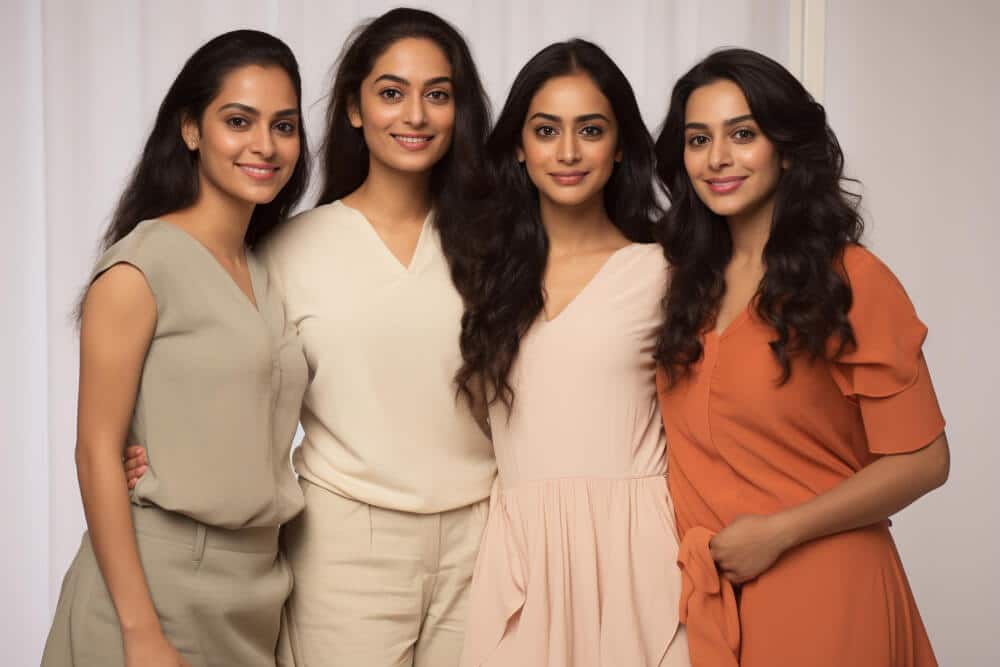Becoming an egg donor in India is a life-changing decision that allows women to help others achieve their dream of parenthood. With clear legal guidelines, medical support, and ethical frameworks in place, the process is safe, structured, and rewarding. If you want to become an Egg Donor, you’ll go through medical and psychological screenings, hormone treatments, and a simple retrieval procedure.
Agencies like Indian Egg Donors make the journey smooth by offering guidance, transparency, and support at every step. Whether motivated by compassion or curiosity, understanding how to be an egg donor and knowing the requirements are the first moves toward making this meaningful contribution.
Understanding the Egg Donation Cycle
Why Choose to Donate?
Deciding to become an Egg Donor in India is an altruistic and impactful choice. You help another individual or couple in their journey toward parenthood—a truly meaningful act. If you work with a reputable agency like Indian Egg Donors, the process is organized, transparent, and supportive, offering you emotional care as well as fair compensation.
Understanding the Legal and Ethical Landscape
India’s Assisted Reproductive Technology (ART) Act of 2021 and guidelines from the Indian Council of Medical Research (ICMR) provide strong legal frameworks. They ensure safety, transparency, and the ethical treatment of donors and recipients.
Key regulations include:
- Only married women (aged 21–39) with at least one child aged three or older can donate.
- Donation is limited—only once in a lifetime, and up to seven eggs may be retrieved per donor.
- All ART clinics and egg banks must be registered with the national registry.
- The process requires informed consent, donor anonymity, and insurance coverage.
- Commercialization is prohibited; compensation must only cover actual costs like travel and medical care.
Eligibility Requirements
If you’re wondering what the qualifications are to be an egg donor, here are the main requirements:
Age: Typically between 21 (or 23, depending on the guideline) and 39.
Marital & Parental Status: Married, with at least one child over three years old.
Health Screening: No genetic disorders, good physical and mental health, negative for infections like HIV, HCV, and STDs. Also includes genetic testing for conditions like thalassemia or cystic fibrosis as needed.
Non-Smoker & Lifestyle: Smoke-free and generally healthy habits.
Meeting these ensures you’re fit to become an Egg Donor in India responsibly and safely.
The Donation Journey—Step by Step
When coordinated by a trusted agency like Indian Egg Donors, the process is clear and well-supported. If you’ve asked how long is the egg donation process is, here’s what to expect:
Initial Consultation – Meet the agency, learn the process, and ask questions.
Medical and Psychological Screening – Physical exams, genetic assessments, infection screenings, and psychological evaluations.
Informed Consent & Legal Formalities – Signing consent forms, affidavits, and insurance coverage.
Ovarian Stimulation – Hormone injections for ~10–14 days to produce multiple eggs, with monitoring.
Egg Retrieval Procedure – A minor procedure under sedation lasting 20–30 minutes.
Post-Donation Care – Medical follow-up and emotional support, with most donors recovering quickly.
This shows how to be an egg donor in a structured, safe, and supported way.
Compensation and Support
While motivated by altruism, donors shouldn’t bear expenses. Compensation usually covers medical tests, travel costs, and lost wages. Importantly, all compensation must be transparent—oversight prevents commercialization.
Benefits & Considerations
Benefits:
- You make a meaningful difference in someone’s life.
- Gain insights into your own reproductive health.
- Receive fair compensation and support from agencies like Indian Egg Donors.
Considerations:
- Possible physical risks like OHSS, bleeding, or anesthesia reactions.
- Emotional aspects of anonymous donation.
- It’s a one-time possibility—so be sure before deciding.
If you’re wondering about egg donation success rates, India has favorable outcomes, especially when donors are healthy and agencies follow strict medical standards. High egg donation success rates make this process more hopeful for intended parents.
Why Choosing Indian Egg Donors Can Help
The brand Indian Egg Donors offers:
- A large pool of pre-screened donors.
- Partnerships with registered clinics for compliance.
- Expert support at every step.
- Competitive, ethical compensation.
Wrap-Up
To become an Egg Donor in India:
- Meet eligibility criteria.
- Complete screening, legal formalities, and retrieval.
- Get transparent support and compensation.
Knowing what the qualifications are to be an egg donor and how long is the egg donation process is helps you prepare better. By donating, you’re offering hope and a powerful gift to families.
Frequently Asked Questions:-
Q. Who can become an egg donor in India?
Ans : Married women aged 21–39 with one child over three years are eligible. If you’re exploring what the qualifications are to be an egg donor, these are the main criteria.
Q. How many times can a woman donate eggs?
Ans : Only once in a lifetime, with up to seven eggs retrieved. This shows how long is the egg donation process is, as it is strictly regulated and limited.
Q. Is egg donation in India anonymous?
Ans : Yes, donors remain anonymous as per legal guidelines. If you’re learning how to be an egg donor, it’s important to know your identity is fully protected.
Q. Does egg donation involve risks?
Ans : Minor risks like discomfort or OHSS exist but are rare. Still, many choose to become an Egg Donor in India because of the strong medical support and safety measures.
Q. Do egg donors get paid in India?
Ans : Yes, donors receive compensation for expenses and care. Many are motivated to become an Egg Donor, knowing their effort contributes to high egg donation success rates for families in need.

Dr. Pooja Patel
Dr. Pooja Patel is a Chief Surrogacy Coordinator at Surrogacy4all. She has 10 years of experience in Anesthesiology and critical care medicine.
She received her medical degree from Seth GS Medical College and K.E.M Hospital in India. She then completed an internship. She finished her Anesthesia residency at Grant Govt Medical College and JJ Group of Hospitals in India.










